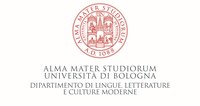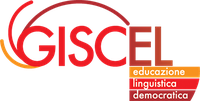Pratiche di traduzione e di cittadinanza interculturale a scuola
Ciclo di seminari
Quale rapporto intercorre tra l’apprendere, l’insegnare e la traduzione, nella scuola di oggi? Quali ‘forme di traduzione’ – nei termini di Roman Jakobson – sono praticate e praticabili, alla luce delle progressive trasformazioni sociali che hanno investito la scuola negli ultimi decenni?
Questo ciclo di incontri intende offrire alcuni spunti sul tema, rinnovando l’attenzione sulla portata pedagogica della traduzione interlinguistica (scritta e orale), sia di quella legata a una progettualità didattica ampia, non delimitata allo spazio di una lingua straniera curricolare o delle lingue classiche, sia di quella emergente nei processi comunicativi spontanei – il fenomeno cosiddetto del child language brokering – che riguarda la classe plurilingue (e non solo), soprattutto laddove, nella sua composizione eterogenea, essa riflette l’evoluzione recente dei movimenti migratori.
A questa forma della traduzione propriamente detta, qui distinta in due modalità di occorrenza a scuola, va aggiunta la traduzione intralinguistica, così come quella intersemiotica, entrambe auspicabili quando è in gioco la comunicazione tra scuola e famiglie o la comunicazione rivolta a minori neoarrivati. Lungi, infatti, dal rappresentare ‘la’ soluzione, la traduzione di documenti e avvisi – dall’italiano nelle lingue native di una parte della popolazione scolastica – esige, in realtà, interventi preliminari sulla lingua italiana stessa e azioni precipue nel quadro di un “ecosistema informativo”, a beneficio di tutti. Il ciclo di incontri pomeridiani, a più voci, vedrà avvicendarsi specialisti dei rispettivi ambiti in cui si articola il tema generale proposto.
Practices of linguistic translation and intercultural citizenship at school
What is the relation between learning/teaching and translating in today’s school? What types of translation – in Jakobson’s terms – are practiced, practicable and/or advisable, in the light of the increasing social changes that schools have been recently faced?
This initiative intends to offer insights that could help researchers, teachers, and school professionals to deal with these questions. It consists in a series of three seminars aiming at renewing our attention to the pedagogical impact of the (written and oral) interlinguistic translation. This refers both to the translation meant as a pedagogical practice adopted in foreign and classical languages teaching and learning as well as to the so-called child language brokering, which includes translating activities emerging within communicative spontaneous processes, in a plurilingual classroom/school, namely where the heterogeneous composition of the latter reflects recent evolutions of migration phenomena.
To these two types of interlinguistic translation, we need to add the intralinguistic translation, as well as the intersemiotic one: both are desirable when home and school communication or communication addressed to unaccompanied new-arrived minors are at stake. Far from being ‘the’ solution, translating documents or notices (from Italian into the native language(s) of part of school population) requires preliminary interventions on the Italian language itself or, more generally, primary actions in the framework of an “informative ecosystem” for the benefit of all. Professionals and experts of the different areas will address these issues in three multi-voice seminars.

